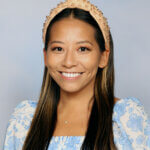Third Grade
Curriculum Guidelines – 3rd Grade
English Language Arts
Mathematics
Social Studies
Science
The intermediate elementary grades are a time of transition. Rigor in the curriculum increases and the students rotate in cycles to teachers for various core subjects. Children are taught reading through the Balanced Literacy Approach. They are no longer “learning to read” as much as they are “reading to learn,” and reading levels increase in difficulty. Students begin to alternate quarters for a more intensive study of science and social studies. Students attend Spanish twice weekly, with one of the three sections of Spanish offered for those students who are “Spanish speakers”. Students continue to attend P.E. and religion daily, and art, music, and computer, weekly.
English Language Arts
- Daily 5 Workstations to enhance student learning from previous lessons taught.
- Whole/small group instruction based on the needs of the students.
- Systematic approach to literacy instruction that supports’ thinking about, within, and beyond text that is being independently read.
- Writing mini-lessons taught to support the mechanics and conventions of writing.
- Grammar lessons taught to guide students’ writing and speaking.
Mathematics
- Understand the meanings, uses and representations of numbers.
- Apply number sense to add and subtract whole numbers.
- Develop proficiency in addition and subtraction.
- Apply conceptual understanding, patterns, and known facts to multiply.
- Apply conceptual understanding, patterns, and known facts to divide.
- Apply number sense to multiply two digit by one digit numbers.
Science
- Classifying matter, changes in matter (heating and cooling), mixtures.
- Identify Forms of Energy and Forces and Motion through hands-on experiments.
- Study Earth and soil formation and rapid changes on Earth’s surface.
- Identify Planets/Solar System position/Sun, Earth, and Moon relationships.
- Ecosystems, food chains, structures and functions of plants and animals.
- In third grade we us Stemscopes Science Curriculum developed by Rice University as our hands-on lessons in Science.
Social Studies
- Understand their roles and responsibilities of being a good citizen.
- Identify where we live, region, climate, vegetation.
- Apply cardinal directions to map skills, learning the 7continents and 5 oceans and US Regions.
- Celebrate culture by studying the significance of ethnic and cultural celebrations.
- Government and economics – study the three branches, voting, constitution.
- Notable American Project – end of year Wax Museum Project and biography unit.
Religion
- Learn and recite Catholic prayers and demonstrate reverence during prayer and Mass.
- Identify and understand the role of the Sacraments in our lives.
- Learn how to look up a Bible verse.
- Learn about role models from the Old Testament and learn from their stories.
- Learn about saints and learn from their lives.
Spanish
- Demonstrate mastery of basic vocabulary previously covered.
- Exposure to the Spanish language through songs, stories, games, pictures, puzzles, and group activities.
- Build and expand vocabulary through thematic units.
- Explore simple grammar concepts.
- Read and understand expanded vocabulary.
- Exposure to a variety of Hispanic cultural events, centered around holidays and cultural customs.
- Make comparisons between English and Spansih and between cultures creating cultural awareness, mutual respect and tolerance.



